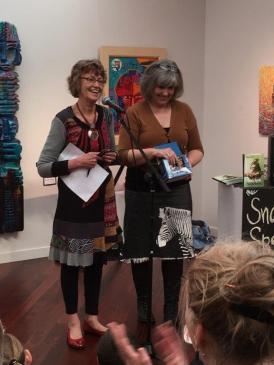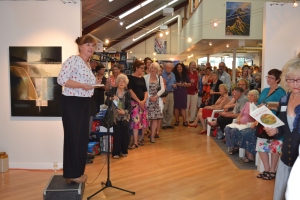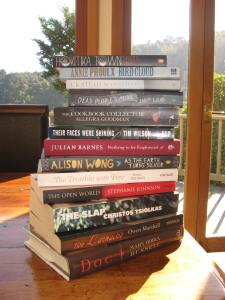Common girls and empanadas (or flash pies).
It’s my day off. I slept late and followed the RoguePOTUS twitter account from my surface pro in bed. I need weaning from this addiction. Lies, lies and more lies from the realDonaldTrump. How very unreal. So, what nicer than to meet a friend for coffee late morning. I could offload about vertigo to a sympathetic ear, sip my soy latte, and chill in the company of real friendship.
On the way home, I realise, after all that talking, I need food, so I slip into a local café and queue. Behind me in the queue is a woman of a similar age to myself. I hear her asking me in a loud voice.
‘Were you a ballet dancer? I’m only asking because of the way you are standing with your toes pointing.’
I’m flattered of course. I’d always wanted to be a ballet dancer. I turn towards her and say ‘No, I was a marching girl.’
And, predictably (to me anyway), she responds, ‘Oh, I always wanted to be a marching girl, but my mother wouldn’t let me.’ She goes on ‘My mother told me only common girls marched.’
I’ve heard this many times before. It’s a middle-class cliche. It’s said with total recognition of the snobbery it implies and yet gives an authority to the very same thing.
‘Yes, that’s me, I was a common girl,’ I say loudly but laughing too at her and myself. Then shamelessly, I go on…‘There’s a book called About turns written on this very topic. It’s about marching girls and book clubs… are you a reader?’
‘Yes, I read…. Can I get it from the local library?’
‘Yes,’ I said, ‘You can. I wrote this novel.’
‘What’s your name?’
‘Maggie Rainey-Smith’.

There’s a chuckle from her friend, who says they will remember it, after all, Maggie Smith is hard to forget.
And then we view the food cabinet together like old friends. The woman whose mother said only common girls were marchers invites me into their conversation about the food in the cabinet. We’re all looking now at a filled roll really but they want to know how one should say ‘Brie and Cranberry Pide’ – was it Peed or was it Pied? We all agree, it looks very much like a Panini and wonder why it is called a Pide. I never do get to hear how to say it because out from the kitchen, steaming and fresh from the oven, comes a plate of Empanadas… looking exactly like a pie or Cornish pastie.

‘Yum,’ I say, loudly, possibly too loudly, possibly overly self consciously and mischievously. ‘I’ll have the pie. We common girls love pies.’
Unperturbed, my new friend asks if I am still marching and I laugh and explain that no, I’m not. And here I have to check myself for my own snobbery, as goodness me, of course I’m not! Hoist on my own petard so to speak.
My new friend confides…She recently saw a group of older women who were still marching and goodness she tells me confident I will laugh… they were so fat… she jokes that she thought they ought to be marching faster. Followed by a hearty chuckle (both of us – for what else should I do with a new-found friend from the queue by the food cabinet).
I do hope my new friend manages to find the novel About turns in the local library… and that the Librarian realises Maggie Smith didn’t write About turns…. but I do fear, that all those clichés that I tried to gently nudge when writing the novel, might very well float right over my new-found friend’s head.









.jpg)







